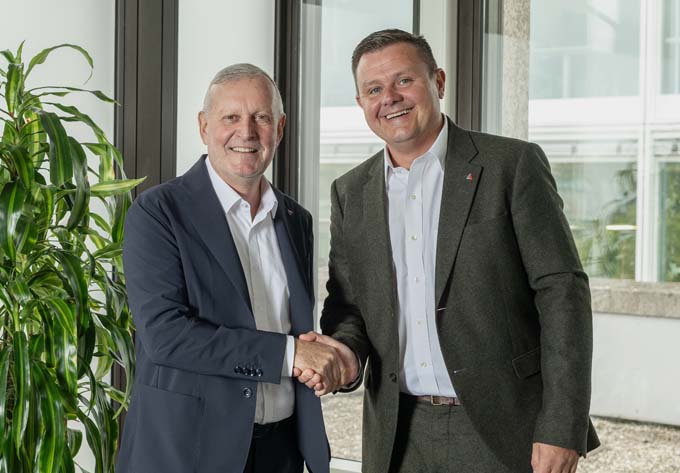Seemingly paradoxical: uncertain times need security
The world is upside down and many who are supposed to provide security and exude confidence are doing the exact opposite. The never-ending crises often throw executives back on involuntary reflexes triggered by fear. The damage can be immense and permanent - unless countermeasures are taken. This article reveals how.

It is only too understandable: one crisis follows the next and there is no end in sight. As if the health threat posed by the coronavirus and the massive disruption it has caused to previously well-established economic processes and supply chains were not challenge enough, rising inflation rates and energy shortages are looming as a result of the war in Ukraine. It is no wonder that the motivation of many executives to deal with ever new bad news is exhausted. The challenge of being forced from one crisis management to the next and only being able to keep up with developments despite all efforts often triggers feelings of insecurity, if not powerlessness. Consequently, it is difficult to give employees the security they would need in the face of crisis imponderables.
Acceptance of one's own limits
So what to do in the face of continuously high uncertainty that requires constant changes to adapt to the situation? How to deal with the concerns and fears that one has oneself and that also haunt the employees? It is clear that working under exceptional conditions for a long time pushes people to their limits. They then act successively less deliberately and self-determinedly, but increasingly follow their involuntary patterns, which as a rule are not very useful from an entrepreneurial point of view, but bring with them a great potential for damage. These patterns include avoided decisions, hectic redirection, thin-skinned communication, fear-driven rigidity and others. Consequently, the insecurity that employees already personally feel is significantly increased. Insecure times need one thing above all else in order to remain manageable: The communication of security with simultaneous recognition of uncertainty and the limitations of one's own resources. At first glance, this seems paradoxical, but it is not. It is precisely the acceptance of one's own limits that can be the key to regaining one's own effectiveness.
The encounter with one's own limits is an unpleasant experience for many people. We are shaped by "higher, faster, further", by success and growth, by "the Indian knows no pain". Boundaries are there to be overcome, not to capitulate to them, right? This attitude, which already drives up burnout rates in "normal" times, completely loses its validity in the face of external threats over which we have no control. It is permissible to feel powerless in a crisis situation, to have no suitable answers at hand, to admit to oneself that the usual solution patterns do not work and new ones have to be sought. How does that feel to you? Is this permissible or a no-go in a world that is supposed to be controlled with a firm hand? It is possible that inner voices will immediately speak up, dismissing the admission of uncertainty as not only gross, but also negligent mischief - and you are already back to involuntary patterns.
Self-observation helps
In order to escape this inner blockade, it is very useful to start with oneself, to observe oneself attentively and to listen within oneself:
- Feelings: What feelings does the current situation trigger in me?
It would not be surprising if the feelings reflected a mixture of fear, surprise, aversion, powerlessness, and perhaps a little shame and guilt on top of this strange and unusual potpourri. It would also not be surprising if you had nothing to do with these feelings and wanted to suppress them. But with that they are still there and have an effect. Therefore: Accept that they are there. Maybe this will make it easier that it is not only you who feels this way. - Values: What are the values behind my feelings and how do I behave as a result?
Performance, success, self-determination and recognition are common values in the professional context. The striving for fulfillment of our values is, in the first approximation, indifferent to external influences - unfortunately. In crisis situations, this leads to a dogged and often hopeless struggle that is more hindering than helpful and leads to exhaustion. Therefore: Question the suitability of your values for critical situations and allow yourself deviations, even if this is difficult. Flexibility, short-term orientation, improvisation and the like can be useful. - Purposefulness: What is useful for achieving my goals, i.e. gaining clarity and security in uncertain times?
By accepting your feelings and reorienting your values, you lay the foundation for steering out of the mode of involuntary and fear-driven behavior and returning to your effectiveness and power. At the same time, this is the basis for directing your gaze undistortedly to the purposefulness of your behavior and your decisions for dealing with the crisis situation. - Employees: Start approaching your employees with the above principles in mind.
Anticipate, inquire about, and honor their feelings. Reveal how you feel and that you cannot offer a panacea. Invite them to look for possible solutions together. In this way, you show empathy for your employees as well as for yourself, cause mutual emotional docking and create a common spirit. This is the basis for confronting the crisis with united forces and conveying emotional security and trust.
Feelings decide
As much as we would like feelings to play no role in business and to decide and act on a purely rational basis, this is pure wishful thinking. Psychology and neurobiology teach us that the drive for our behavior and actions lies much more in our feelings than in our thinking. This goes so far that we rationally underpin decisions made intuitively after the fact. Conveying security and trust in uncertain times is therefore a highly emotional process that can succeed well with empathy and bring back the ability to act.
Book reference: "The Change Code - How people get excited about change and win companies with it".
For years, three quarters of all change programs in companies have gone wrong. They waste money, destroy motivation and diminish competitiveness. It's high time that the botched change process finally came to an end. Dieter Lederer knows how this works The Change Code. He invites people to focus consistently on what they need to be enthusiastic about change. Because only in this way will they develop confidence and powerfully implement a new entrepreneurial direction.
Dieter Lederer
The Change Code
How people get excited about change and win companies with it272 pages, hardcover bound
ISBN: 978-3-527-51107-5
Wiley-VCH, Weinheim










